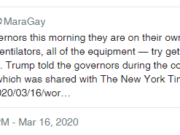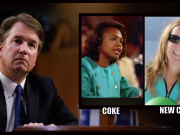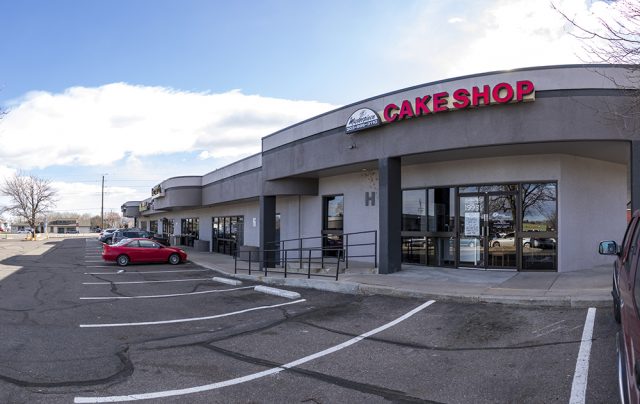The Supreme Court’s decision this week in Masterpiece Cakeshop v. Colorado Civil Rights Commission prompted many social Conservatives to celebrate a huge victory for religious freedom and prompted gay rights advocates to lament an outrageous defeat.
Both sides were wrong and had a vast misunderstanding of what the Supreme Court actually did.
First, here’s what the Supreme Court did not do:
SCOTUS did not rule that it’s ok for businesses to discriminate against homosexuals. (As I wrote back in September, that never even happened in this case.)
SCOTUS did not rule that First Amendment guarantees of free speech and religious freedom trump anti-discrimination laws.
SCOTUS did not rule that Masterpiece Cakeshop had the right to refuse to prepare a cake for a gay wedding. (This question, which most of us expected to be decided in this case, wasn’t even discussed in the opinion.)
SCOTUS did not rule that the decision of the Colorado Civil Rights Commission fining Masterpiece Cakeshop for refusing to make that cake was wrong as a matter of law.
And, contrary to pretty much everyone’s assessment that Masterpiece Cakeshop “won” the case, SCOTUS did not even rule that the Commission can’t go after Masterpiece Cakeshop again for the same incident.
Here’s what the Supreme Court did rule in its very narrow opinion: The Commission’s decision against Masterpiece Cakeshop must be vacated because Masterpiece’s due process rights were violated by the Commission.
That’s it.
To summarize the facts for readers who have been on vacation in Antarctica for the past few years: A gay couple asked Masterpiece Cakeshop, which is owned and operated by a devout Christian, to prepare a cake for their upcoming same-sex wedding. The shop, which had never refused to serve any customers on the basis of their sexual orientation, refused to prepare this specific item because it would have been an expression of acceptance and approval of same-sex marriage. That idea was contrary to this business owner’s sincere religious beliefs.
The gay couple filed a complaint with the Colorado Civil Rights Commission. The Commission held a hearing in which the members openly disparaged the cake shop owner’s Christian beliefs and compared his refusal to bake a cake for a gay wedding to supporting slavery and the Holocaust. The cake shop owner appealed that decision in the federal courts and lost at every step until he got to the U.S. Supreme Court.
SCOTUS vacated the Commission’s decision and reversed the courts that upheld it – but not on the grounds that the Commission’s ruling was legally wrong.
SCOTUS vacated the Commission’s decision specifically and solely because the Commission’s open hostility to the cake shop owner’s religion and religious beliefs denied him a fair process.
SCOTUS’s decision can be summed up in one simple sentence: Government agencies must be neutral regarding the religion and religious beliefs of all parties that appear before them.
And that’s all it said.
Notice that this ruling said nothing about the substantive rights of either the cake shop or the gay customers. In fact, Justice Anthony Kennedy, writing for the majority, specifically stated that they were not addressing those issues in this decision (while also noting that other cases are currently pending in the courts that could result in such a ruling in the near future).
For those of us who place a high value on religious liberty and due process, this ruling was a victory, but a pretty minor one. The U.S. Supreme Court, in a 7-2 ruling that included two liberal justices, strongly and harshly condemned the religious bigotry displayed by the Colorado Civil Rights Commission and made it abundantly clear that such bigotry is unacceptable by any government agency.
However, while this ruling was a small step in the right direction, it is important to understand that it was strictly limited to protecting due process rights and did nothing to reinforce our individual substantive rights to free speech and free practice of religion. Those fundamental rights will need to be vindicated another day.
A few more observations about the Masterpiece Cakeshop decision:
1. As far as I can tell, the Colorado Civil Rights Commission could reopen this matter and rehear it in a religion-neutral manner, and they could rule against Masterpiece Cakeshop and fine it again. I see nothing in the SCOTUS decision that would prevent that from happening (although decisions in similar cases currently working their way through the courts potentially could do so).
2. I suspect that this decision was decided narrowly on a due process issue because Justice Kennedy didn’t want to have to decide the substantive rights issue and knows he will be off the court before that issue has to be decided. I’ll be looking for his retirement announcement later this month.
3. When President Obama nominated Elena Kagan for the Supreme Court, some social conservatives objected on the grounds that she was rumored to be a lesbian and therefore could not be objective on issues related to homosexuals. I don’t know (or care) whether that rumor is true, but if it is, then in voting with the majority, she proved that a gay justice can, in fact, make rulings in such cases based on the law and not personal bias. It is a poor reflection on the conservative movement that this was ever a question in anyone’s mind, and I hope we never hear such nonsense raised by our side again.
4. Ever since the original Masterpiece Cakeshop decision by the Colorado Civil Rights Commission five years ago, Colorado Republicans have been fighting to reform the Commission to ensure that businesses are treated fairly. They have had only slight success because the Democrats have fought their every effort. The U.S. Supreme Court’s bare-knuckled take-down of the Commission for its religious bigotry strongly vindicates the Republicans and should provide fuel for them to finally win real and meaningful reforms.
Author: Ken Falkenstein
Ken Falkenstein is the Managing Editor of Committed Conservative and brings a wealth of experience and expertise in public affairs to the job. Ken served in the U.S. Army in the last years of the Cold War as a Russian linguist for military intelligence and the NSA. After leaving the Army, he earned his degree in Secondary Education from Old Dominion University, where he also wrote a popular column in the student newspaper.
Upon graduation, Ken worked as a Legislative Aide to two Republican members of the Virginia House of Delegates. Ken also served as Corresponding Secretary of the Young Republican Federation of Virginia, managed several successful political campaigns, and managed governmental affairs operations for a local Realtor association.
In 1995, Ken moved to Washington, DC to serve as a Legislative Assistant to Sen. John Warner (R-VA). While working for Sen. Warner, Ken attended law school at night, earning his J.D. with honors from the George Mason University School of Law (n/k/a The Antonin Scalia Law School). Since that time, Ken has practiced as a civil litigation attorney, including serving for three years as an Associate City Attorney for the City of Virginia Beach, Virginia.
Ken previously was a contributor to the highly-regarded political blog Bearing Drift and was a weekly co-host of The Steve Batton Radio Program. In 2016, Ken ran unsuccessfully for the Virginia Beach School Board. Ken is also a former President of the Down Syndrome Association of Hampton Roads.
Ken now lives outside of Denver, Colorado with his wife, Kim, and three sons, Adam, Dylan, and Joshua, who has Down syndrome. Ken’s writing is motivated and informed primarily by his concern for his kids’ future.
































